Episodes
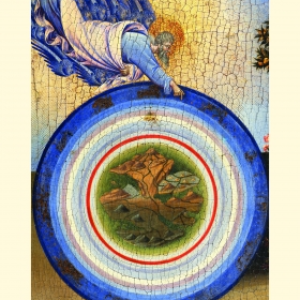
Friday Jun 30, 2023
Ep 147 - Daniel Shields on Nature and Nature’s God
Friday Jun 30, 2023
Friday Jun 30, 2023
Paul felt it was important to put Daniel's book title in the episode title, but Bill's suggested title is too good not to place somewhere:
TSSM: NEW BOOK EXPLORES MEANING IN MOTION
- In this new episode of the “That’s So Second Millennium” podcast, your host Paul Giesting, assistant professor of mathematics and sciences at Wyoming Catholic College, interviews his faculty colleague, Dr. Daniel Shields, assistant professor of philosophy. Shields’s book, Nature and Nature’s God: A Philosophical and Scientific Defense of Aquinas’s Unmoved Mover Argument, has just been released by Catholic University of America Press and is available for purchase here.
- This discussion is tailor-made for these two Catholic scholars who bring broad scientific and philosophical knowledge, plus fervor for conversations at the intersection of multiple disciplines, to their research and teaching. It is also tailor-made for the “TSSM” podcast, which seizes this golden opportunity for a curtain-call while remaining on official hiatus. The podcast generated about 150 episodes between 2018 and 2022, with co-host Bill Schmitt. They focused on the intersection, incorporating everyday life and the pursuit of virtuous wisdom—past, present, and future.
- Shields makes reference to Dr. Robert C. Koons, professor of philosophy at the University of Texas at Austin. Koons wrote a review of Nature and Nature’s God, praising its integration of natural philosophy and metaphysics. The book combines scientific knowledge with insights into the writing of St. Thomas Aquinas.
- Shields and Giesting go into depth on Aquinas’s proofs for the existence of God, especially his favored “first way”—arguing our cosmos filled with motion needs an “unmoved mover” at its origin (and beyond). The discussion elaborates on the idea that God keeps everything in motion.
- The book, Shields explains, goes on to apply natural philosophy and metaphysics to such subjects as statistical mechanics, contemporary cosmology, and even biology.
- Through it all, Shields and Giesting make mention of many historical figures, from Aristotle to Copernicus to Newton to Maimonidesto Helmholtz. Present-day references include Brother Guy Consolmagno, SJ, known as the Pope’s Astronomer, and quantum physics scholar Sean Carroll.
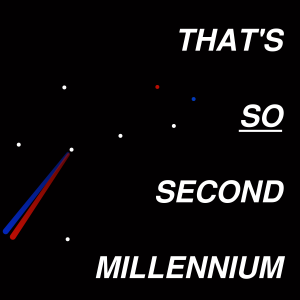
Monday Nov 21, 2022
Ep 146 - TSSM Takes a Break
Monday Nov 21, 2022
Monday Nov 21, 2022
- The co-hosts announce that the TSSM podcast, now posting our 146th episode, will begin a hiatus, but all programs and show notes will continue to be archived and accessible.
- This episode allows Dr. Paul Giesting and Bill Schmitt to look back on their four-and-a-half years of interviews and discussions seeking a greater synthesis of knowledge: an exploration of science and religion, philosophy and spirituality, neuroscience and quantum physics, policies and principles, history and the future, to better understand ourselves and the values and virtues in our lives. Our curiosity and concerns are grounded in our experiences as cradle Catholics, a confidence that faith and reason can grow together as essentials for problem-solving wisdom, and a desire to honor the Church a central source of guidance and continuing growth.
- Our first episode was posted on April 2, 2018, more than four-and-a-half years ago. We have welcomed a long list of well-known guests with expertise in a variety of fields, seizing the opportunity for rigorous but highly accessible, interdisciplinary and inspirational, conversations that transcend silos of specialization. We are grateful for the grand adventure of pursuing truth and reality, both visible and invisible, with the scholars and thought-leaders who shared their insights.
- That’s So Second Millennium was the first podcast to provide structured news coverage and commentary on the conferences and lectures of the Society of Catholic Scientists, and we interviewed a number of SCS members. Both Paul and Bill have been members of the growing, international organization.
- Paul, who holds a PhD in Geology from the University of Notre Dame, presented a lecture on uranium and nuclear power at the SCS 2022 conference in Chicago.
- In this episode, we made references to Billy Joel’s “We Didn’t Start the Fire” and to “Sing God a Simple Song”—from Leonard Bernstein’s
- We talked about Wyoming Catholic College, where Paul is on the faculty, and we talked Holy Cross College, where Bill taught as an adjunct professor for three semesters before moving from South Bend, IN, to Troy, NY, in 2022. Both solidly Catholic colleges, we agreed, excel in their efforts to integrate the different aspects of our humanity and the various forms of knowledge within the hearts and minds of students.
- Paul and Bill are inveterate Catholic communicators and educators. Learn more about Paul’s background in teaching, consulting, and public service. Learn more about Bill’s life as writer-editor, broadcaster-blogger, and author.
- Here are some of the people we have been privileged to interview: SCS president Stephen Barr; planetary scientist Jonathan Lunine; astrophysicist and astronomer Brother Guy Consolmagno, SJ; theologian Paul Seongh Chung; Magis Center president and EWTN series host Father Robert Spitzer, SJ; astrochemist Karin Oberg; neurobiologist Maureen Condic; speaker-evangelist Deacon Harold Burke-Sivers; pro-life experts Richard Doerflinger and Christopher Bell; geologist Anne Hofmeister; cybersecurity expert Michael Cloud; psychologist Darcia Narvaez; business professor-author Anjan Thakor; and soul and spiritual musician Micki Miller. Learn more about them in the show notes accompanying their TSSM episodes. Thanks also to our friend, composer and performer Vin Marquardt, for writing our podcast’s closing theme for a long time, “Igneous Grok.”
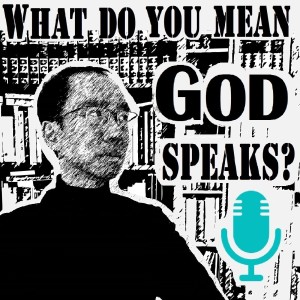
Monday Oct 17, 2022
Ep 145 - Faith Journeys That Make a World of Difference: Paul Seungoh Chung
Monday Oct 17, 2022
Monday Oct 17, 2022
- Paul and Bill welcomed Paul Seungoh Chung to discuss how people can converse constructively about God despite their different backgrounds and different faith journeys. Dr. Chung, who has taught Christianity and science courses at the University of Toronto, is the author of God at the Crossroads of Worldviews: Toward a Different Debate about the Existence of God (University of Notre Dame Press, 2016).
- He also produces a podcast, “What Do You Mean God Speaks?”—a presentation of his ongoing research and reflection for a second manuscript. His compelling comments, citing Bible stories and other resources, aim to follow up on the book’s hopeful message: When two persons seeking God along different paths find a crossroads where they can share key ideas, how do they take the next steps to pursue meaning and purpose through further spiritual and intellectual inquiry? The crossroads “sets the frame to start the journey,” he explained in our interview.
- Dr. Chung holds a Ph.D. in the philosophy of religion from Fuller Theological Seminary. He earned a Master of Religion degree from Wycliffe College, an evangelical graduate school rooted in the Anglican tradition at the University of Toronto. As an undergraduate at the University of Toronto – University of Trinity College, he received a Bachelor of Science degree in psychology and philosophy.
- He has served as a pastor at local churches in Toronto and has worked with a mission organization, Canada Mosaic Christian Alliance.
- Dr. Chung’s references during our conversation included the philosophical insights of Alasdair MacIntyre at the University of Notre Dame, the concept of “paradigm shifts” described by philosopher of science Thomas Kuhn, and the atheistic argumentation of physicist Stephen Hawking.
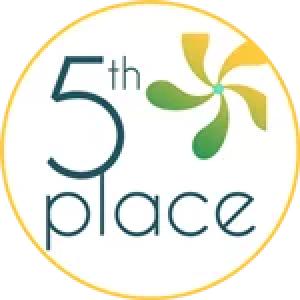
Friday Sep 23, 2022
Ep 144 - Matthew & Chantal of 5th Place on Emotional Fitness
Friday Sep 23, 2022
Friday Sep 23, 2022
This month's episode focuses on the psychology of emotions and the need to respect them. On the one hand we do not want to be controlled by negative emotions, but on the other, we cannot simply will them away. Further, we need positive emotions in order to live rich and loving lives; we cannot simply force our way forward forever.
Not respecting our emotions leads them to hijack us in many ways. A notable example is compulsive behavior or obsessions. The extreme versions of these we call addictions.
Matthew and Chantal developed their emotional fitness practice in order to reach people across a variety of cultural and economic backgrounds in South Africa, children in particular. Learn more about Matthew and Chantal's work at 5th Place.
Note: Paul received a one month access pass to the 5th Place class on emotional fitness prior to recording this episode. Nothing else of monetary value was exchanged.
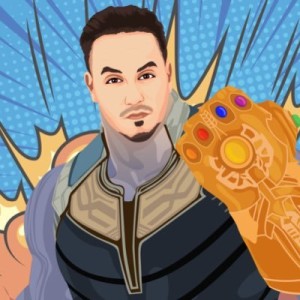
Tuesday Aug 30, 2022
Ep 143 - Scott Gazzoli and Spirit over Show
Tuesday Aug 30, 2022
Tuesday Aug 30, 2022
For August Paul interviewed Scott Gazzoli of the Causing the Effect podcast. He's a wealth manager in Brooklyn who has been through a long and harsh spiritual journey. We touch on fitness and the psychology of achievement and spend the most time talking about the deceptiveness of material goals--money, sex, physical pleasure--how spiritually and psychologically they turn out to be deceptive and destructive.
Be sure to check out:
Scott: Causing the Effect Podcast, on YouTube, Twitter, and Instagram
Our interview
Scott's recommended read, Mindfulness in Plain English
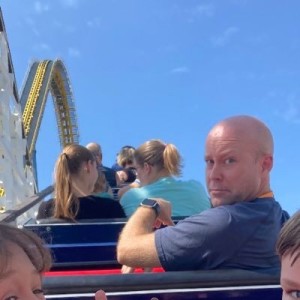
Sunday Jul 31, 2022
Ep 142 - Matt Swaim: Symbols and Substance, in Faith and Online
Sunday Jul 31, 2022
Sunday Jul 31, 2022
-
Matt Swaim is the co-host of the Son Rise Morning Show, heard Monday through Friday 6-8 am on hundreds of stations in the nationwide EWTN Catholic radio network. He is also the outreach manager for the Coming Home Network, an apostolate that helps non-Catholic Christians who desire to learn more about, and consider entrance into, the Catholic Church. He co-hosts a podcast, “On the Journey,” for that organization.
-
Paul and Bill talked with Matt largely about the challenges in understanding, and then catechizing and evangelizing about, the Real Presence of Christ’s body and blood, soul and divinity. It is this Eucharist, into which Catholics believe the bread and wine at Mass have been transubstantiated.
-
Bill also has gotten to know Matt by being interviewed on the Son Rise show, and the two share an interest in media criticism on communication about religion. More generally, they discuss communication which uses symbolic language and sometimes loses touch with important truths.
-
Matt has written a book that deals with these topics. Prayer in the Digital Age, was published by Ligouri Press in 2011. Bill has written a book on related topics. When Headlines Hurt: Do We Have a Prayer? was published in 2018.
-
The topics of the Eucharistic and symbolism vs. the Real Presence became especially timely this year when the US Conference of Catholic Bishops initiated a “National Eucharistic Revival.” The bishops were reacting, in part, to national survey findings that only about one-third of American Catholics believe the Eucharist is the real body and blood of Jesus Christ, rather than a symbol. Survey findings came from the Pew Research Center, and Bill wrote about those findings recently for The Tablet, the newspaper of the Diocese of Brooklyn, NY.
-
Matt made reference to the Latin maxim, Lex Orandi, Lex Credendi. He also referred to the “milkshake duck” meme and how it ties in with digital media culture. This savvy media analyst also made references to The Dark Knight and to the Hollywood films constituting “the Marvel universe” of comic book superheroes.
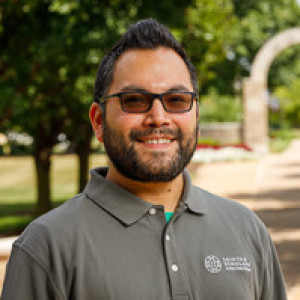
Thursday Jun 30, 2022
Ep 141 - Louis Albarran and the Faith of Real People
Thursday Jun 30, 2022
Thursday Jun 30, 2022
- Paul and Bill spoke with Louis Albarran, associate professor of theology at Holy Cross College in Notre Dame, IN. Albarran holds a master’s degree and a Ph.D. from the University of Dayton, and he specializes in the connection of religion, culture, and the physicality of devotional practices, with a focus on the Latino Catholic culture.
- Albarran spoke of the story of Our Lady of Guadalupe, as told by the Aztec people in their own language. The name of this narrative is Nican Mopohua.
- Albarran spoke of the Dayton school of thought regarding the meaning of Catholic devotions for culture. He referred to Thank You, St. Jude, written by Robert Orsi. [Paul cannot help adding a reference to St. Jude by Brian Setzer.]
- Currently reading: Making Culture by Andy Crouch.
- The annual “Saints and Scholars” summer program for high school students on the Holy Cross College campus is directed by Albarran.
- Peter Kreeft and Christopher Baglow offer notable perspectives on the compatibility of science and religion.
- Holy Cross College’s Moreau College Initiative grants degrees to prisoners.
- William Cavanaugh wrote about the wars of religion and the rise of the nation-state. Peter Kreeft wrote a condensed Catholic catechism. Kenneth Miller wrote Finding Darwin’s God. Aldous Huxley wrote Brave New World.
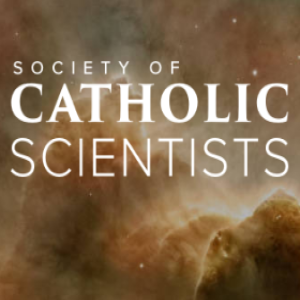
Monday Jun 06, 2022
Bonus - Society of Catholic Scientists 2022
Monday Jun 06, 2022
Monday Jun 06, 2022
Quick hit running down the SCS Conference for 2022 at Mundelein Seminary outside Chicago. The conference theme was the environment.
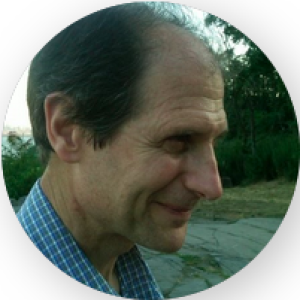
Tuesday May 31, 2022
Ep 140 - Chris Bell – Views from a Pro-Life Lifetime
Tuesday May 31, 2022
Tuesday May 31, 2022
- Christopher Bell, president and executive director of Good Counsel Homes, is “on the frontline of the pro-life movement,” as The Catholic World Report wrote in a 2021 profile. Chris and TSSM co-host Bill Schmitt have been friends since their college years, when they were both studying journalism. Co-host Paul Giesting joined the two native Long Islanders for a discussion of Catholic values in the abortion debate shortly after the leak of a draft US Supreme Court decision which pointed toward a Court decision overruling Roe v Wade.
- In 1985, Bell co-founded Good Counsel with Father Benedict Groeschel, who was a much-loved voice in Catholic spirituality and media and a member of the Franciscan Friars of the Renewal.
- Good Counsel operates four homes to provide basic necessities and steps toward a stable future for moms and their babies, unborn and recently born, in New York and New Jersey. The homes are a pro-life alternative available at no cost to mothers who choose to give birth rather than abort their babies.
- The trajectory of politics and policies in New York and New Jersey has been strongly pro-abortion. The differences in approaches among all the states are being highlighted more than ever in the context of the Supreme Court’s pending decision in Dobbs v Jackson Women’s Health Organization.

Saturday Apr 30, 2022
Ep 139 - Pondering Big Issues Powered by Uranium
Saturday Apr 30, 2022
Saturday Apr 30, 2022
-
In this episode, Paul and Bill situate themselves geographically, updating each other on their latest activities and changes in locale. Paul is on a medical mission to Billings, Montana, at the moment. Bill has moved from South Bend, where he was an adjunct professor at Holy Cross College, to Troy, NY, the hometown of his wife.
-
Uranium mining is on Paul’s mind during his brief departure from Wyoming Catholic College in the small town of Lander. As a PhD geologist, Paul will make a presentation on the modern-day considerations of uranium mining and nuclear power at the 2022 conference of the Society of Catholic Scientists. The conference will be held on the first weekend of June at Mundelein Seminary near Chicago. (Brother Guy Consolmagno, SJ, a consecrated brother in the Jesuits and a distinguished astronomer, will be honored by the SCS this year with its St. Albert the Great Award.)
-
The inconveniences of uranium, says Paul, who has studied it since his graduate studies at the University of Notre Dame, stem from its undeniable value for power generation—and some characteristics he described as compellingly “weird.” He takes us on a professor’s tour of the periodic table and the uranium mining regions near his campus.
-
Kazakhstan and Russia are key sources of uranium. In-situ leaching is a growing source for uranium elsewhere in the world, including in the US.
-
Every state regulates uranium and any mining activities. For example, Texas has a Commission on Environmental Quality. There is a complex history of regulation of uranium and nuclear energy at both the state and federal levels.
-
Paul referred to Bill’s membership in the international Secular Franciscan Order.
-
Paul offers a survey of opinions and alternatives in energy policy for the Earth. For a very recent and well-informed video treatment of sustainable energy choices for the future, see “Can We Cool the Planet?” at PBS’s NOVA series website.
-
India is probing possibilities for thorium as a source of nuclear energy. China is staking much of its energy future on nuclear power. In the US and elsewhere, politicians must get more serious about addressing crucial, conflict-ridden challenges, such as the storage and reprocessing of uranium.
-
A note: Paul recommends the episodes on Nietzsche and Epicurean philosophy from the “Food 4 Thought” podcast, presented by Jonathan Kutz, which covers philosophy and science from Christian perspective. It’s a natural for fans of “That’s So Second Millennium.” You can access “Food 4 Thought” on several platforms, including Anchor and Audible.
-
Cover photo: Yellow needle-like crystals of studtite ([(UO2)(O2)(H2O)2] · H2O) on flat orange crystals of becquerelite (Ca(UO2)6O4(OH)6 · 8H2O). Ex Gilbert Gauthier, via Adriana & Renato Pagano. Collection and photo by Gianfranco Ciccolini, as seen at mindat.org.

